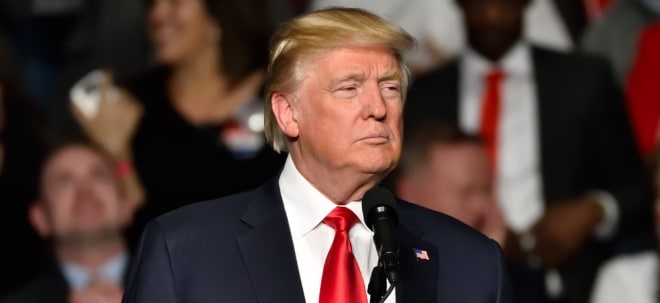Counting Nokia Out Of The Smartphone Race Is Dangerous
It is easy to look at the current situation in smartphones and declare the market divvied up and the competition over. It fits nicely into a false Us vs. Them narrative. But markets are not binary. The technology and financial media are obsessed with numbers, because they are easy to discuss and, if properly analyzed, have no agenda. So, when the reports come out that Google's (GOOG) Android operating system dominates the Chinese smartphone market and we see that Apple's (AAPL) iPhone 4s sold far above expectations in China while Windows Phones have struggled it is easy to sit back and declare the fight is over. It's Android vs. iOS and that is all there is to it.
But, is that true?
Certainly Google has first mover advantage in being Apple's antipode. One could make the argument that Microsoft (MSFT) is just trying to play catch up to the titanic shifts that are happening in the computing world with Windows Phone as the maturation of disparate technologies are coalescing towards this inflection point we are living in and, as analysts, trying to make predictions about.
But, again, is it true?
Developing Ecosystems
All three have plans and all of them are in various stages of development. None of them are complete, with each one having an advantage in different areas of the market. So, to say that the war is over because two competitors got to the tablet and smartphone market first is, objectively, premature.
In the realm of mobile phones we know the lifespan of the devices is shorter than that of a PC. Hence there is always room for a new phone to come in and disrupt the existing market.
Which brings me to Nokia (NOK). We analysts like numbers, like I said, so here's a real number for you, Nokia is still the top-selling brand of phone in China. As impressive as Samsung and Android's sales have been in the smartphone market it is still just a fraction of the current mobile phone market and, moreover, most people in this part of the world have two phones: a smartphone for doing work and a Nokia feature phone because it is just better as a phone.
How Smart is a Bad Phone?
Sometimes we outsmart ourselves, looking at the numbers, cash flow, market share, units sold, etc. The plain old truth is that 75% of the world is still on a pay-as-you-go plan with a $25 Nokia phone. Symbian, even though Nokia has abandoned it in favor of Windows Phone, still has greater market penetration for internet-connected phones in China than Android according to the latest report from Baidu. This is not to say that the current trends are in Nokia's favor. There is a reason the stock is trading at less than $3 per share.
But, there is still plenty of opportunity for Nokia to regain their footing and leverage their brand in the emerging middle class of Southeast Asia and India where their phones are considered the best at the mobile device's primary function, being a phone.
The reviews of the new Nokia Lumia 900 Windows Phone all uniformly praise the phone for its reception, speed and call quality along with the Windows Phone OS.
Now the Numbers
Smartphone penetration in China is only 8%. In the U.S. the number is 35%. India is 3%. There is still plenty of time for these ecosystems to evolve in a market that still has to find its way in the business environment. IDC's latest report has Windows phone sales in Q1 2012 up 27% year over year to 3.3 million sales, but total market share fell to 2.2%, slightly below that of Linux. The 2nd quarter sales with the flagship phone will tell us what the future holds.
Microsoft's ownership of Skype continues to be brought up as a red herring with respect Windows Phone and carriers. Now that carriers like AT&T (T) have gone to a pure pay per gigabyte data model does it matter how the carrier gets paid for the data that's transmitted, package minutes or packet data? Both are now billable by usage. Once Microsoft and Nokia get Verizon on board the battle will be engaged completely and a clearer picture will emerge.
Microsofkia?
Nokia is currently trading at a market cap equivalent to the sum of its cash and short term. While this would look to make it a good M&A target, to be bought, split up and sold for more than the sum of its parts, its contracts with Microsoft and Windows Phone lock Nokia into that platform for the next five years so anyone buying Nokia at this point would have to negotiate with Microsoft to get out of those agreements.
Obviously, Microsoft is the most likely candidate to buy Nokia in this scenario. Looking at the option chain for Nokia there is less than 0.1% of the current float in outstanding out-of-the-money-calls in open interest expiring in October 2012 or later. There are some large speculative bets on Nokia for January 2013 between $5 and $10 per share. But maximum option pain in January is currently flat between $4 and $5 per share, so the options market is aligned slightly bullish right now. The July earnings report with a full quarter of sales of the Lumia in the U.S. and Europe.
To sum up, now that Nokia and Microsoft have released a phone that showcases the OS on hardware that allows comparison to both the current iPhone and the best Android phones by Samsung the market can begin to compare their merits. Counting out Nokia's experience at building brilliant handsets and Windows Phone relative ease of development compared to Android's endless forking would be a dangerous mistake for any investor.
http://seekingalpha.com/article/...f-the-smartphone-race-is-dangerous |


 Thread abonnieren
Thread abonnieren

